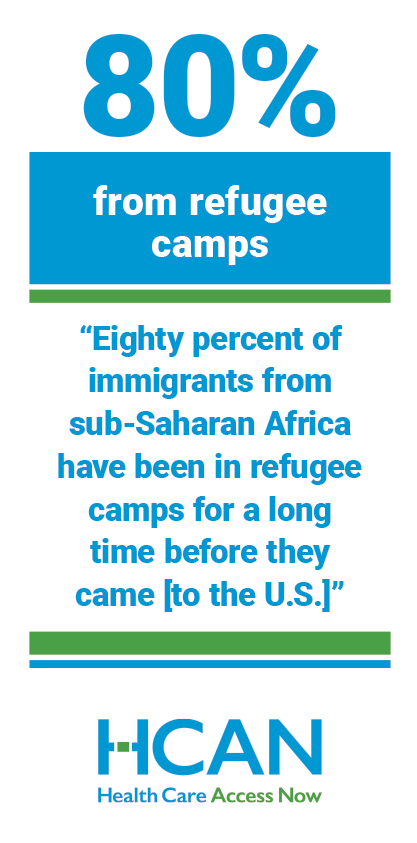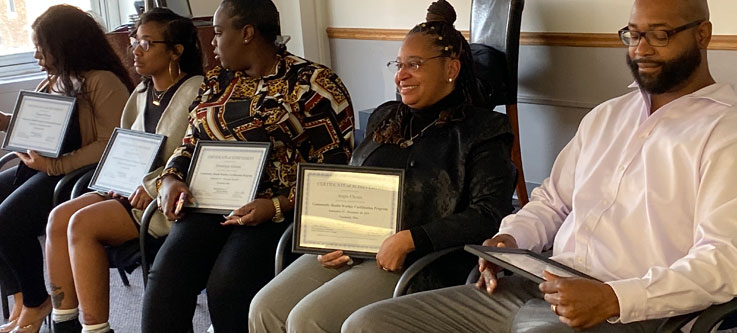Ebenezer Healthcare Access: Addressing the Refugee Experience in Ohio

Headlines are filled with news about immigration. We learn of contentious debates about the U.S. and Mexico border. We read about travesties in Congo, Sudan, Haiti, Ukraine and Gaza, and the desperate conditions that force people to flee their homelands and seek peaceful lives elsewhere. Too often these stories feel like something happening elsewhere, in another part of the world.
Immigrants’ lives are on the minds of Community Health Workers right here in Ohio. Ebenezer Healthcare Access supports immigrants in the Columbus, Dayton and Cincinnati areas. The organization was founded in 2019 under the leadership of Jean de Dieu Mukunzi, who has worked on public health initiatives in Ohio and in his native country, Rwanda. Ebenezer employs community health workers to connect refugees and migrants with services they need. Last year, Ebenezer worked with 1185 people from 22 countries, connecting them to doctors, health insurance, jobs, transportation, food and translation assistance.
[Interested in becoming a Community Health Worker?]
Ebenezer supports immigrants from all over the world but has a specific focus on the special needs of those who have arrived here from Africa. “Eighty percent of immigrants from sub-Saharan Africa have been in refugee camps for a long time before they came here,” Mukunzi told HCAN. “Some of them are coming from countries like South Sudan where they have been experiencing genocide, the war. Some of them do have mental health issues compared to immigrants from other parts of the world.”
Often these immigrants have not had access to consistent schooling. Some lack reading and writing skills. Still, they must navigate the U.S. medical system. Mukunzi said many are accustomed to seeking out medical care only when they are in crisis. CHWs introduce them to preventative health care, connecting them with primary care providers and helping them understand that stable housing, food security and other social determinants of health are critical to their families’ wellbeing.
Word of mouth helps Ebenezer locate eligible Ohioans, as do strong partnerships with churches that serve immigrants, Mukunzi said. After performing an initial needs assessment with a client, the CHW establishes clear goals and then conducts monthly visits to track progress. The CHW takes an active role, calling around to find providers, confirming the client has transportation to appointments, and providing translation when needed. “Learning a language does not happen in a year,” Mukunzi told HCAN. “Most of them stay with us for a long time because they have this language issue they need to overcome.”
The organization’s 2023 annual report lifts up the story of Ruvamwabo Mukesha, a 50-year-old mother of four who spent 20 years in a Ugandan refugee camp before eventually settling in Ohio. Ebenezer has helped Mukesha enroll her children in school and pay down a past-due utility bill. The organization has been a godsend, Mukesha told her interviewer. “I do not know how I should survive in this country without a company like Ebenezer which is helping to get what I need and advocate for me when I am not able to express myself in English.”







